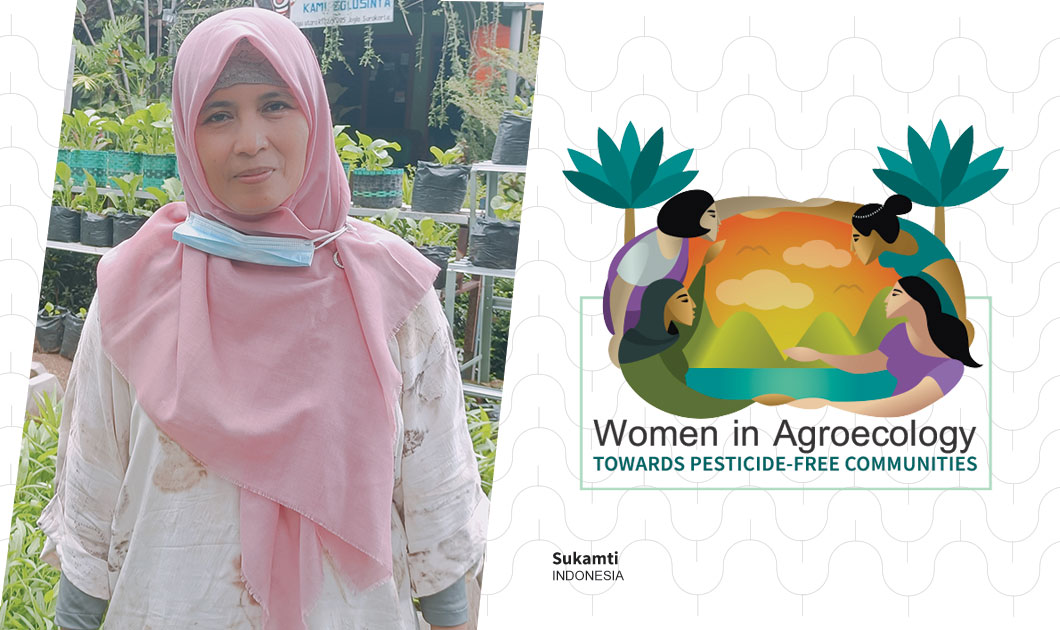Sukamti, 55, is farming for the first time in her life. A former seamstress, she was encouraged to try agriculture by the women’s farming group called Ngudi Makmur (Trying to be Prosperous). Ngudi Makmur is a collective farming initiative of 35 women farmers in the village of Joglo, Banjarsari, Surakarta City in Indonesia. It was established in 2018 when a landlord agreed to let the women farmers use his land rent-free for an initial period of five years.
The group plants a diverse number of crops in their collective farm, including vegetables (water spinach, spinach, long beans, cucumber, eggplant, chilli and lettuce) and butterfly pea. The women cultivate honey as well as maggots (black soldier flies) for use in feeds and composting. They also raise chickens and cattle, and do fish cultivation.
From the beginning, the group has used agroecological methods as part of an integrated farming system. They were inspired by the group Yayasan Gita Pertiwi who informed them about the adverse impacts of pesticide use and the benefits of agroecology. To control pests, they use garlic fermentation and eco-enzymes. Organic fertilizers derived from the farm are used to boost plant growth. Since they do not use chemicals, there are a lot of beneficial insects in the farm such as butterflies, bees and spiders.
The collective farming initiative first and foremost secured the food needs of the women farmers. Members of the group can take the vegetables from the garden for their own family’s consumption. “Especially during the pandemic, we felt that our immune system was improved due to the consumption of organic vegetables,” said Sukamti.
Meanwhile, whatever the women earn from selling the crops are split among the group, with those who work more also earning more. The group also earns from making processed food products, such as syrup/juice from butterfly pea (sirup telang), butterfly pea candy (candy telang), papaya chips, moringa and butterfly pea sticks, water spinach sticks, snacks (onde-onde) and other herbal drinks (jamu). They also produce ecoprint cloth, or clothes stamped with leaf prints from the farm.
“I have significantly improved my skills and knowledge in farming. I also share my knowledge on agroecology to other groups in the community in order to motivate them to work on sustainable agriculture and avoid the use of chemical products. I want to convince them that the the yields are as good, if not better, than conventionally grown crops,” she said.
Sukamti continually improves her knowledge and understanding by joining workshops and trainings, as well as browsing the internet for resources. The more she experiences and learns, the more she believes in the positive impacts of agroecology on health, environment, and livelihoods. ###
Women In Agroecology: Towards Pesticide-Free Communities is a continuing storytelling initiative of PAN Asia Pacific and its partners to document stories of rural women who are survivors of pesticide poisoning and/or making the transition to agroecology.
Our contributing partners: Shikkha Shastha Unnayan Karzakram (SHISUK), Bangladesh; Society for Rural Education, India; Gita Pertiwi, Indonesia; Thanal Trust, India; PAN India; and Sustainable Agriculture and Environment Development Association (SAEDA), Laos








Discussion about this post